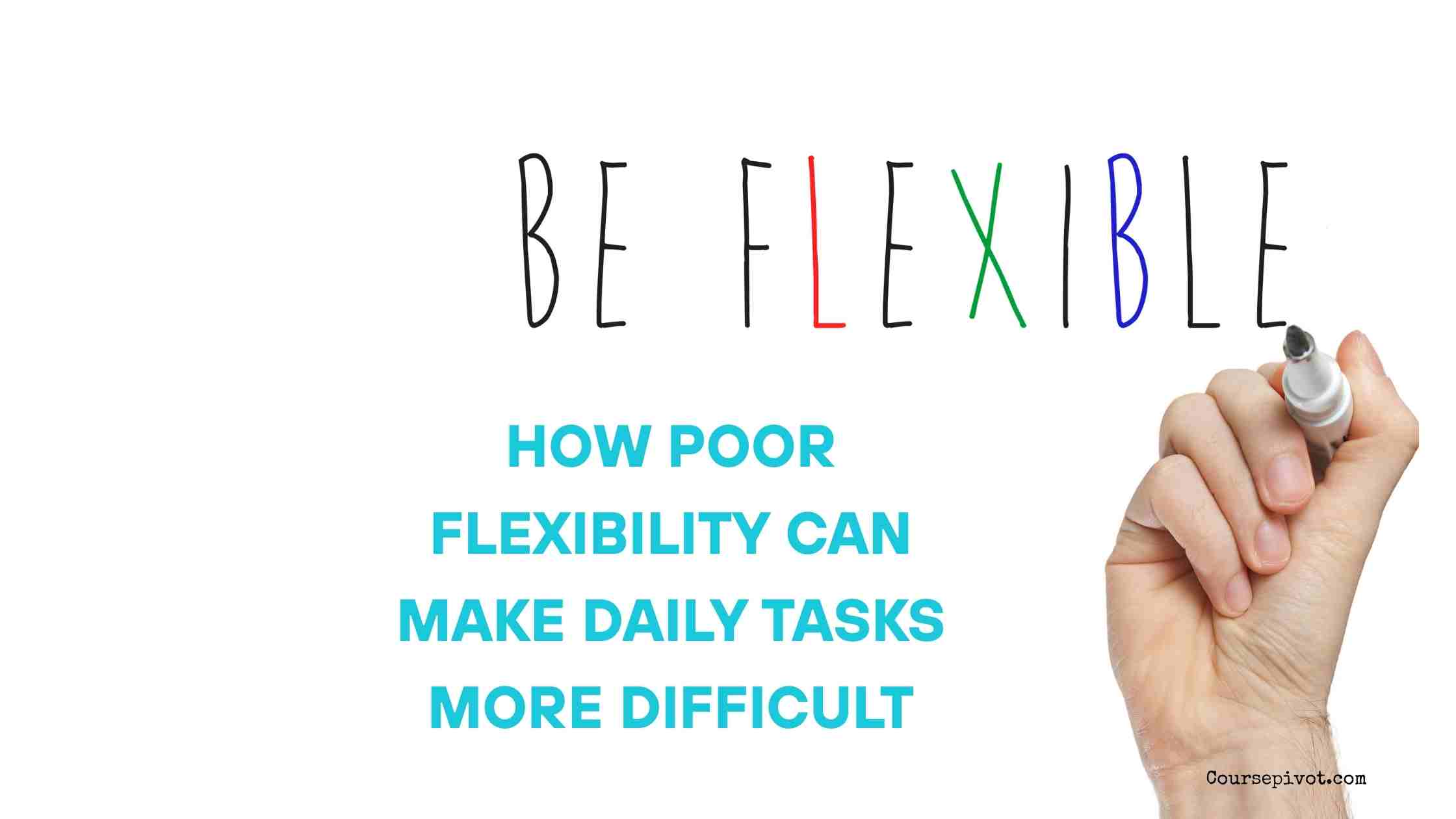
How Poor Flexibility Can Make Daily Tasks More Difficult
Flexibility is often overlooked, but it plays a crucial role in how easily and comfortably we perform everyday activities. When flexibility is limited, our muscles and joints become stiff and less responsive. From my own experience and what I’ve observed, poor flexibility can significantly impact your ability to complete simple daily tasks, making life more challenging than it needs to be. Let me break down why this happens and what it means for your day-to-day functioning.
What Is Flexibility and Why Does It Matter?
Flexibility refers to the ability of your muscles and joints to move through their full range of motion without pain or restriction. It allows you to bend, stretch, twist, and reach comfortably. When flexibility declines, your body’s natural movement patterns become limited.
How Poor Flexibility Affects Daily Activities
1. Difficulty Bending and Reaching
Simple tasks like tying your shoes, picking something up from the floor, or reaching for items on a high shelf become difficult. Tight hamstrings, lower back stiffness, or shoulder inflexibility can make these movements painful or impossible without strain.
I remember struggling to put on my socks after a few months of neglecting stretching. The discomfort made me realize how much flexibility affects basic mobility.
2. Reduced Balance and Stability
Limited flexibility often leads to poor posture and muscle imbalances. This affects your balance and increases the risk of falls or awkward movements during everyday activities such as walking up stairs or carrying groceries.
3. Increased Muscle Tension and Discomfort
When muscles are tight, they can cause chronic aches and pains. Tasks that involve repetitive motion, like typing or cooking, can feel exhausting because your muscles are constantly overworked to compensate for the lack of flexibility.
4. Limited Ability to Perform Household Chores
Tasks like vacuuming, gardening, or cleaning require bending, twisting, and stretching. Poor flexibility can make these movements uncomfortable or lead to compensatory movements that cause strain elsewhere in your body.
5. Decreased Range of Motion in Joints
Stiff joints mean you can’t move as freely, which affects everything from getting in and out of a car to climbing ladders. This limitation can slowly reduce your independence.
Why Does This Happen?
When muscles and connective tissues become tight or shortened, joints can’t move through their full range. This restriction forces your body to find alternative, often inefficient ways to move. Over time, this leads to discomfort, fatigue, and even injury.
How Can You Improve?
Maintaining or improving flexibility through regular stretching, yoga, or mobility exercises can make daily tasks easier and reduce discomfort. From my experience, dedicating just a few minutes a day to stretching significantly improved my comfort and ability to move freely.
- Read our blog on How Exercise Can Positively Affect Your Environmental Health
Final Thoughts for You
In summary, poor flexibility impacts much more than just your workout. It makes everyday tasks harder and more uncomfortable. Simple actions like bending, reaching, and balancing become challenges.
This limitation can cause muscle pain and increase your risk of injury. It also reduces your independence over time.
The good news? Improving flexibility is possible with regular stretching and mobility work. Even small daily efforts can make a big difference.
By prioritizing flexibility, you’ll move more easily, feel less pain, and enjoy a better quality of life every day.
Flexibility truly is the key to living comfortably and staying active.
Cite this article
You can copy and paste your preferred citation format below.
Martin, L. & Arquette, E.. (2025, May 25). How Poor Flexibility Can Make Daily Tasks More Difficult. Coursepivot.com. https://coursepivot.com/blog/how-poor-flexibility-can-make-daily-tasks-more-difficult/



